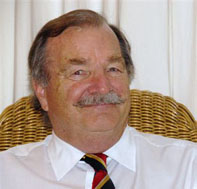An international team of scientists is persisting in trying to connect with aliens living in outer space. This week the Seti team in California (Seti meaning “the Search for Extra-terrestrial Intelligence”) announced it would carry on trying to make contact with Aliens despite calls for caution.
The “Alien-hunt facility” has almost 400 signal-detecting dishes in the mountains northeast of San Francisco.
It can transmit into deep space and receive signals.
The question is: what happens if we receive an intelligent message?
The astrophysicists have agreed on one thing: “Don’t answer it!”
They prescribe that “no response should be sent until appropriate international consultations have taken place.”
This decision comes as a great relief to me. The last thing I would want is for Planet Earth to attract the attention of some giant planet which might then send a double-decker space bus filled with lizard-men 70m high in their stockinged feet who come tramping all over us as if we were ants as they search for the intelligent life that replied to their transmissions.
Since space probing by radio waves began in 1959 the most intelligent signal received has been from an electronically operated garage door.
An international team discused how to respond to it for four days.
Ever since scientists set up Seti I have pleaded for Seti to rather go for a KOHDASU policy (Keep Our Heads Down and Shut Up). This is because I fear that if there is intelligent life out there its creatures might be bigger, meaner and greedier than us earthlings. And the last thing we want to do is attract their attention.
They might harvest us to extinction just as we have done to various species on our own planet.
They might collect us in bags for sale in open air markets on Planet Zug selling us by the scoop like loose nuts.
They might carry our skyscrapers and railway trains back with them for their mountain-sized kids to play with – after shaking out all the wriggling little occupants.
Or they might be cold, slimy, smelly creatures who take a shine to us and with hearts overflowing with affection crawl into our beds at night eager for warmth and company.
The one ray of hope in all this is that if we do receive a signal it will probably be millions of years old. This is because if there is indeed life out there it will be on a planet zillions of light years away.
On the other hand what’s to say they can’t travel a million times faster than light or send remote giant controlled vacuum cleaners to suck up and bring home little samples of distant planets – little samples such as London or New York?
Filed under: General, space, Uncategorized | Tagged: outer space, Seti team | Leave a comment »




